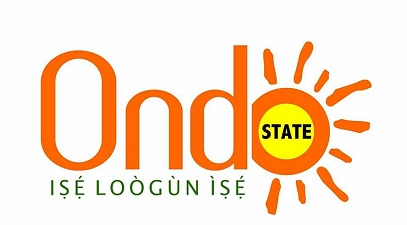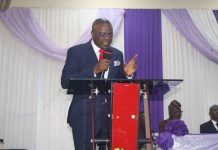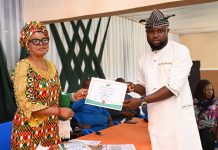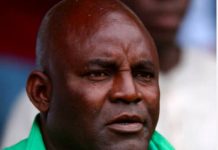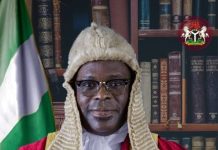
The Ondo State Government has announced plans to start biometric verification of public servants in the state.
According to a statement from Prince Ebenezer Adeniyan, Chief Press Secretary to the Governor of Ondo State, the exercise is to streamline its workforce and ensure accurate data on employee levels across the state’s civil service.
The disclosure was made on Tuesday during a press briefing held after Monday’s State Executive Council meeting presided over by Governor Lucky Orimisan Aiyedatiwa at the Governor’s Office, Akure.
The Head of Service, Mr. Bayo Philip, stated that the verification exercise is aimed at enhancing efficiency, in line with the governor’s commitment to fiscal discipline.
“The essence of this biometric verification is to know the respective levels of every public servant. It is not intended to scare anyone but rather to ensure accountability within the system,” he explained.
Also, he announced that the implementation of the N73,000 new minimum wage for civil servants in the state has commenced. He noted that salaries reflecting the new wage structure had already been paid.
“On behalf of all public servants in Ondo State, I express our gratitude to Governor Aiyedatiwa for keeping to his promise. I urge civil servants to double their productivity and make the all-round development of the state their priority,” he said.
Also, Commissioner for Economic Planning and Budget, Emmanuel Igbasan, assured residents that the government is laying the groundwork for skill acquisition programs to empower youths across the state to become wealth creators.
The Commissioner for Education, Laolu Akindolire, emphasized Governor Aiyedatiwa’s dedication to improving educational infrastructure.
He revealed that the governor has approved the construction of a senate building at the University of Medical Sciences (UNIMED), Ondo, with an initial N500 million deposit to kickstart the project, while the balance of N500 million will be included in the 2025 budget.
He also disclosed plans for the renovation of primary, secondary, and technical schools across the state to enhance the learning environment for students.
Meanwhile, the Commissioner for Local Government and Chieftaincy Affairs, Amidu Takuro, announced the approval new traditional rulers (Obas) to strengthen leadership at the grassroots level.
They are: The Takunbe of Ipoke in Ese Odo local government, Prince Hosea Julius bladapo; the Laragunsin of Ode – Iyansan in Irele local government, Prince Akingomi Olasehinde John; the Lumure of Ayeka in Okitipupa local government, Prince Babatunde Michael Ayeyoma and the Alaboto of Aboto to llaje local government, Prince Oyetayo Ofoaye.
The newly recognized traditional stools in the state are: Olusin of Owalusin in Akoko South local government area and Onitedo of Mahintedo in llaje local government area.
On health matters, the Special Adviser on Health, Prof. Simidele Odimayo, provided updates on efforts to tackle public health challenges. He noted a significant reduction in Lassa fever cases, attributing it to collaborative efforts between the government and residents.
However, he urged citizens to maintain clean environments, drink safe water, and practice proper hygiene to prevent future outbreaks.
Addressing the cholera spread, Odimayo outlined government measures to curb the disease, including awareness campaigns and enhanced access to clean water in vulnerable communities.
The Commissioner for Information and Orientation, Otunba Wale Akinlosotu, said the State Executive Council reaffirmed the governor’s commitment to prioritizing projects and policies that would improve the quality of life for residents, assuring them that 2025 will mark a turning point in the socio-economic development of the state.


